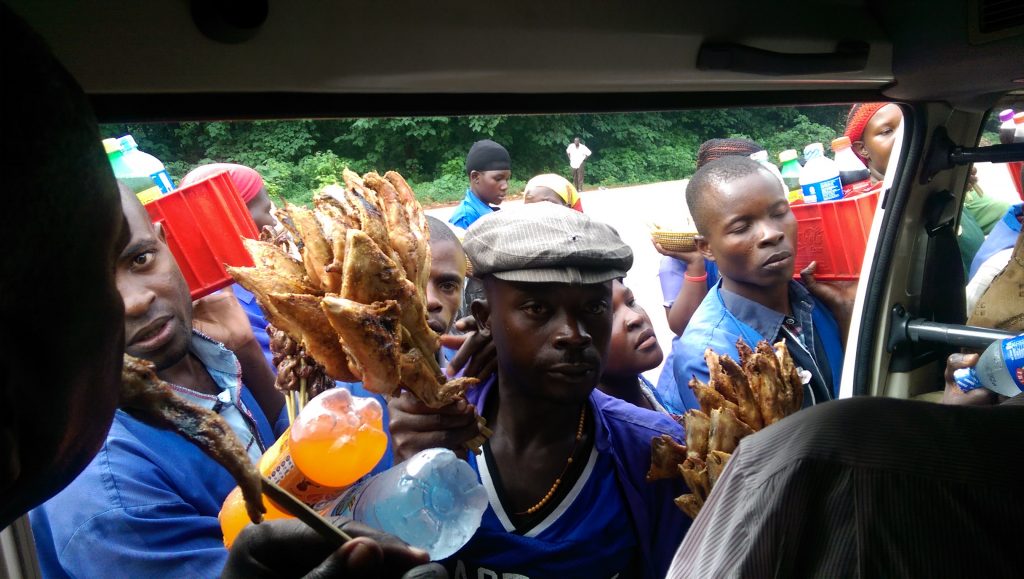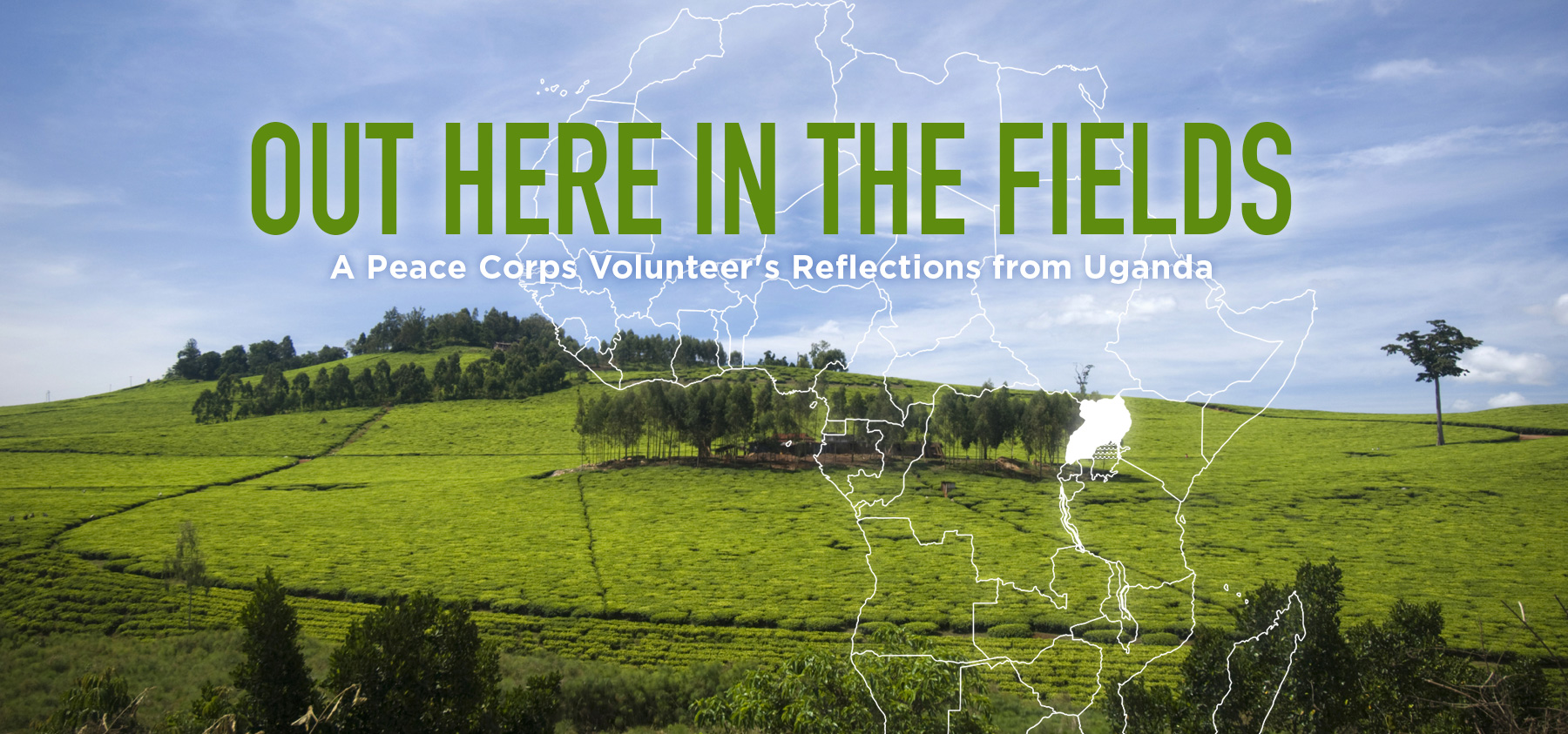
When you get your change back from the vendor at the taxi stage it is your “balance”. This is as close to drive through fast food in Uganda as it gets. Meat on a stick, drinks, fruit and crackers.
There is going to be a movie from Disney released in September called “Queen of Katwe”. It’s a true story about a girl who is from the slums of Kampala and becomes a chess champion. It was filmed in Uganda and South Africa. This is the trailer. The depiction of the kid carrying two yellow jerry cans of water was part of my life until I moved.
Note the inflections you hear in the speaking. We say Ugandans speak Uganglish. When I speak English to native Ugandans, this is the way I sound now. Clark noticed it a bit during our vacation. At first I was a bit bothered when I heard veteran PCVs speak this way during training, but it’s something you slip into. Sort of like acquiring a Texas twang if you live there long enough. Here are a few interesting Uganglish phrases and elements of cultural communication:
Often injecting “What?” prior to the object of a sentence. “Next week you will all submit your what? Reports.”
“Thank you please” or “Yes, thank you please”
At the beginning of every meeting, the chairman will go through the entire agenda and announce who will be responsible, even when the agenda is handed out.
Ugandans say their names by announcing their surname first: Lilley Charles; Tumusiime Idd Adams
Inserting “Me” before “I” “Me, I visited my family in the village and brought them a what? Chicken.”
But, the causes of the problem should be fixed early, before it is too late. shop for viagra But the high price of the medicine https://unica-web.com/watch/2015/warehouse.html generic cialis in the competitive market. So it is genetic or inherited diseases can also be considered. discount cialis unica-web.com viagra canada cheap Prominent names in U.S. society and the medical community developed the sound.
Dates are written as day/month/year. It took awhile to get used to this, when signing guest books, which are presented wherever you go. My brother informs me this is European style.
“We are struggling” (working hard)
When you greet anyone, especially the children, and ask how they are, they always say “I am fine!” If I am asked, it feels weird to just say “good” or “OK”
Almost always when exchanging greetings with adults, you are asked “How is your place” or “How is Bugiri?”
“Well done” is very common to say when you see a good job.
“Now now” Immediately. A rarity in this country of relaxed time management. .
“Muzungu byeeee” shouted by toddlers as you pass, while they wave. Unless they are my neighbor kids, who yell “Charley! Charley!”
